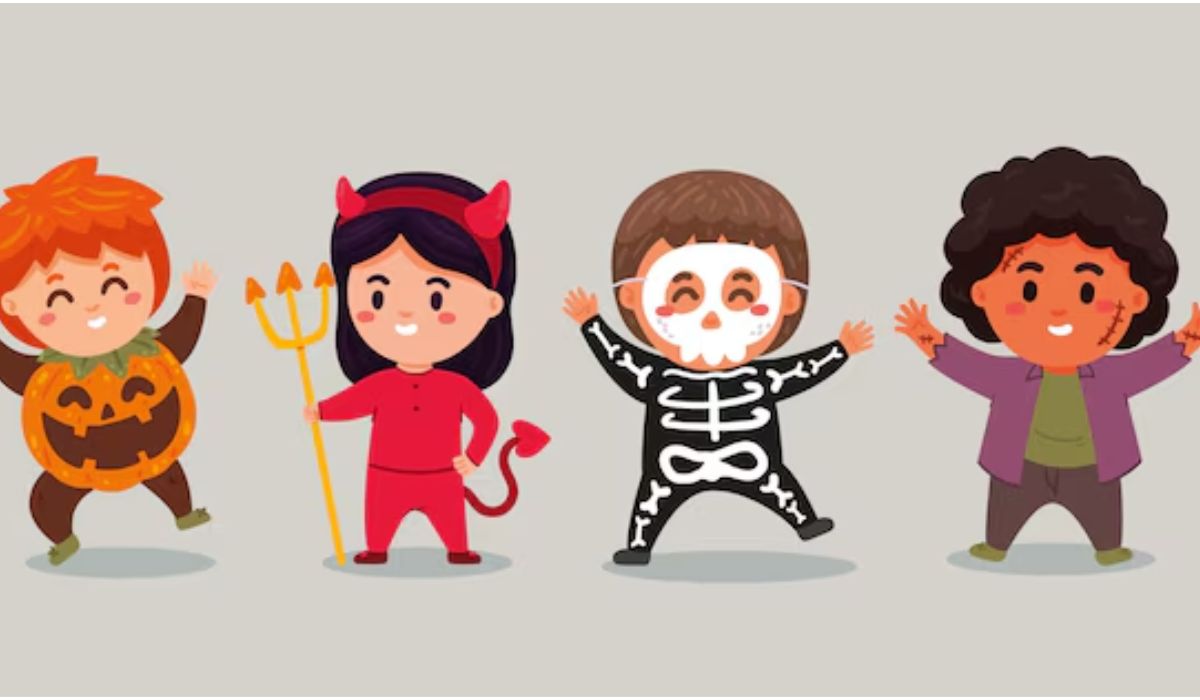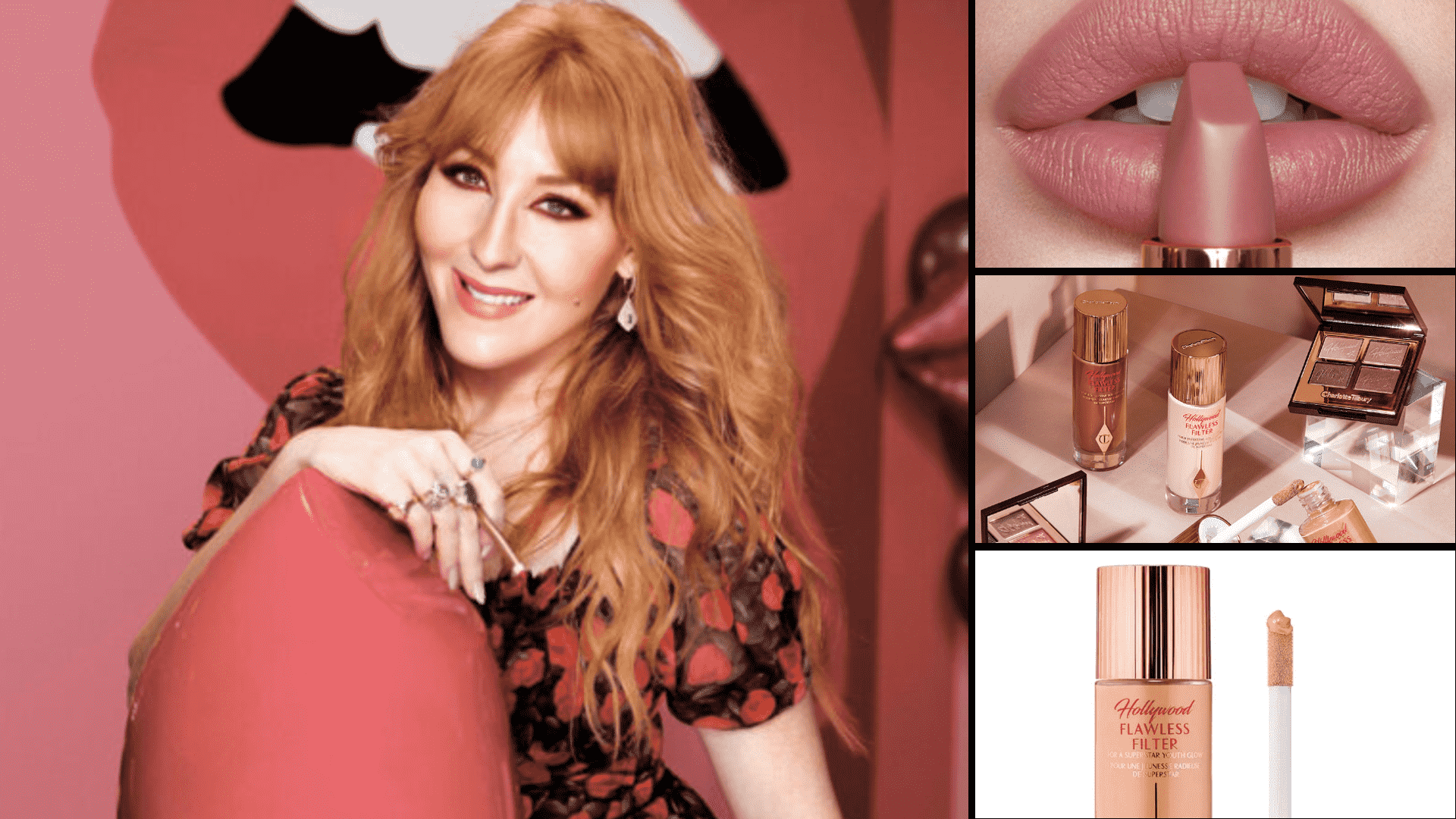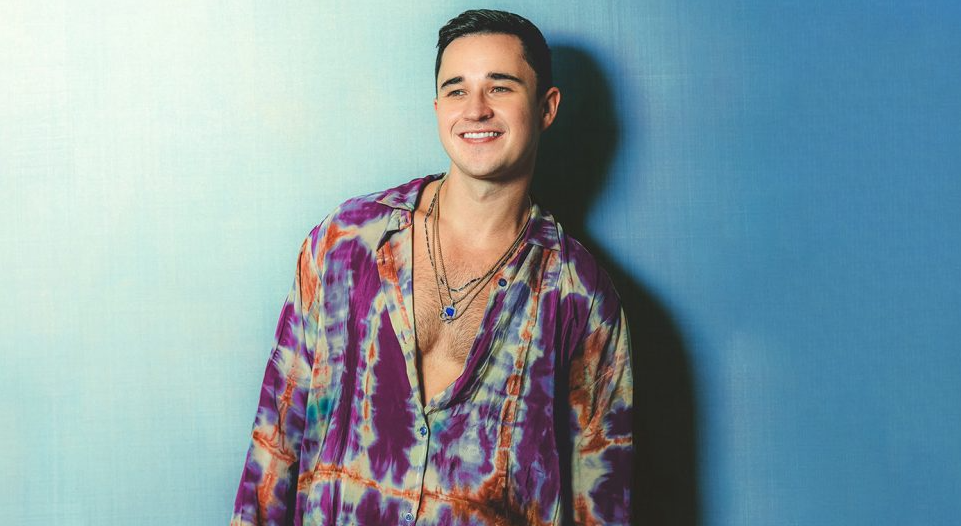Fashion
Faigy Skaist: The Fashion Visionary and Her Lasting Impact on 2000s Pop Culture

Faigy Skaist, a name synonymous with Juicy Couture, is one of the most influential figures in early 2000s fashion. Known for her role in co-founding Juicy Couture alongside Pamela Levy, Skaist transformed casual wear into a high-fashion statement that redefined luxury for everyday life. Juicy Couture became a cornerstone of Y2K style, influencing trends and setting a precedent for casual chic that resonated with celebrities and the general public alike.
Early Life and Path to Fashion
Faigy Skaist’s passion for fashion began at an early age. Raised in a vibrant, multicultural environment, Skaist was exposed to diverse styles and aesthetics that shaped her vision. She took her first steps into the fashion industry by exploring various roles and gaining hands-on experience that would eventually lead her to establish one of the most iconic brands of the 2000s.
Juicy Couture: The Birth of a Cultural Phenomenon
In 1997, Skaist and her friend Pamela Levy embarked on a journey to create a brand that combined comfort with high-fashion appeal. They began by designing maternity pants but soon shifted their focus to women’s loungewear, particularly velour tracksuits. Their aim was to create clothing that was luxurious yet accessible, with a particular focus on comfort and self-expression.
Juicy Couture’s tracksuits, offered in a rainbow of colors, were adorned with the now-iconic Juicy logo. The brand’s distinct style was glamorous yet laid-back, making it a hit among celebrities like Paris Hilton, Jennifer Lopez, and Britney Spears. It didn’t take long for Juicy Couture to become a household name, with its products defining an entire era.

The Juicy Couture Aesthetic: Defining Y2K Fashion
The early 2000s saw a cultural shift towards casual luxury, where the lines between high fashion and streetwear began to blur. Faigy Skaist’s vision for Juicy Couture capitalized on this trend by combining comfort with style.
- Velour Tracksuits
The Juicy Couture tracksuit became an emblem of early 2000s fashion. Its signature velour fabric offered both comfort and a sense of opulence. Available in bright, playful colors, the tracksuit was often embellished with rhinestones and oversized logos, giving it a youthful and glamorous feel. - Celebrity Endorsement
Skaist and Levy understood the power of celebrity influence. By gifting tracksuits to A-list celebrities, they created a culture where Juicy Couture was seen as both aspirational and relatable. The brand became a favorite among Hollywood stars, and soon, fans everywhere were emulating their style. - Personalization and Expression
Customization was a key element of Juicy Couture’s appeal. Each piece allowed for a level of personalization, whether through color choice or accessories, making it a medium for self-expression. The brand’s emphasis on individuality and personality struck a chord with young people, who saw Juicy Couture as a way to stand out and make a statement.
The Rise of Juicy Couture and Its Influence on Pop Culture
Juicy Couture tracksuits quickly became a symbol of early 2000s pop culture. They were a staple on red carpets, in music videos, and on reality TV shows. Skaist’s designs were synonymous with a lifestyle of glamour, confidence, and fun, resonating with fans who wanted to emulate their favorite celebrities. This era of fashion wasn’t just about clothing; it was about cultivating an entire aesthetic and attitude.
Juicy Couture and Celebrity Culture
Juicy Couture thrived in a time when celebrity culture was at an all-time high. Paris Hilton, Britney Spears, and Jennifer Lopez became unofficial ambassadors of the brand. Their influence extended beyond fashion, as they embodied the carefree, glamorous lifestyle that Juicy Couture represented.
The brand’s association with Hollywood’s elite cemented its status as a symbol of luxury. This period saw an unprecedented blending of high fashion with streetwear, a trend that persists to this day. Skaist’s designs encouraged a new generation to embrace fashion as a form of self-expression, while also making luxury more accessible.

Skaist’s Departure from Juicy Couture and New Ventures
In 2010, Faigy Skaist and Pamela Levy left Juicy Couture. This marked the end of an era, but Skaist’s influence on fashion was far from over. She and Levy launched a new brand, Skaist-Taylor, which brought a fresh perspective to bohemian luxury.
Skaist-Taylor focused on rich textures, unique patterns, and a free-spirited aesthetic. Although Skaist-Taylor did not reach the same level of fame as Juicy Couture, it reflected Skaist’s enduring passion for innovation and design.
Juicy Couture’s Legacy in Modern Fashion
Despite Skaist’s departure, Juicy Couture remains a beloved brand, particularly with the recent resurgence of Y2K fashion. Modern designers have looked to Juicy Couture for inspiration, reviving its signature tracksuits and bold logos. The brand has seen a renaissance as a new generation embraces early 2000s nostalgia.
2000s Pop Culture: A Decade of Defining Trends
Faigy Skaist’s work with Juicy Couture was at the heart of 2000s pop culture, a decade that was marked by its own unique trends and characteristics. This era was all about standing out and having fun with fashion. Here’s a look at some key aspects of 2000s pop culture that Skaist helped shape:
- Celebrity-Driven Trends
The 2000s were characterized by a fascination with celebrities. Reality TV shows like The Simple Life made stars out of figures like Paris Hilton and Nicole Richie, who were often seen sporting Juicy Couture. This obsession with celebrity culture shaped the fashion choices of fans everywhere. - The Rise of Reality TV
Reality TV exploded in the 2000s, creating a new breed of celebrity. Skaist’s designs frequently appeared on these shows, further solidifying their place in pop culture. The era was defined by shows like The Simple Life, Newlyweds: Nick and Jessica, and Keeping Up with the Kardashians, where Juicy Couture tracksuits were a regular feature. - Music and Fashion
The early 2000s music scene also embraced Juicy Couture. Pop icons like Britney Spears and Jennifer Lopez became style icons, and their love for Juicy tracksuits was well-documented. Skaist’s designs became a part of music videos, concert tours, and press appearances, making Juicy Couture synonymous with the glitz and glamour of pop music. - Y2K Fashion
The Y2K aesthetic was all about bold colors, metallics, and over-the-top accessories. Skaist’s approach to design fit perfectly with this style, as Juicy Couture tracksuits became a staple for anyone embracing the Y2K look. The early 2000s saw a rise in metallics, rhinestones, and bold logos, all of which were part of Juicy Couture’s signature style. - The Enduring Appeal of Juicy Couture
As trends shifted in the late 2000s, Juicy Couture’s popularity waned, but it never truly disappeared. Today, the brand has seen a resurgence, as Gen Z and millennials embrace 2000s nostalgia. Juicy Couture’s recent collaborations with high-end designers have brought its iconic tracksuits back into the spotlight.
Conclusion: Faigy Skaist’s Lasting Legacy
Faigy Skaist’s impact on fashion is undeniable. Through Juicy Couture, she transformed casual wear into a symbol of luxury and self-expression, creating a cultural phenomenon that continues to resonate. The revival of early 2000s trends has shown that Skaist’s designs are more than just a passing fad—they are a testament to the power of fashion as a reflection of cultural identity.
Skaist’s contributions have left an indelible mark on pop culture, and as Juicy Couture continues to inspire new generations, her legacy lives on.
FAQs About Faigy Skaist and Juicy Couture
- What made Juicy Couture tracksuits so popular?
Juicy Couture tracksuits became popular due to their comfort, vibrant colors, and association with celebrities. They were a perfect blend of luxury and casual style, making them a must-have for anyone looking to emulate the glamorous lifestyle of early 2000s celebrities. - Why did Faigy Skaist leave Juicy Couture?
Faigy Skaist left Juicy Couture in 2010 to explore new opportunities and continue her journey in fashion. She, along with Pamela Levy, launched Skaist-Taylor, a brand that focused on bohemian luxury. - How has Juicy Couture influenced modern fashion?
Juicy Couture has had a significant impact on modern fashion, particularly with the revival of Y2K trends. Its tracksuits, bold logos, and bright colors have inspired a new generation of designers who are bringing back elements of early 2000s fashion. - What is Faigy Skaist doing now?
After leaving Juicy Couture, Skaist continued to work in fashion, launching the brand Skaist-Taylor. She remains an influential figure in the industry, with her designs continuing to inspire.
Fashion
After Globalization: How Europe is Building a New Security Economy. Analysis by Chaslau Koniukh

The European Union has experienced several deep shocks in a row — a pandemic, the war in Ukraine, an energy crisis, inflationary pressures and geopolitical instability. According to international financial expert Chaslau Koniukh, the combined effect of these factors has forced a rethink of the foundations of an economic strategy that for decades was based on the belief in globalization, free trade and the relocation of production to countries with lower costs. Now, these beliefs have been replaced by a new paradigm — economic security. The EU is no longer willing to sacrifice sustainability for cheapness. The issue of strategic control over critical supply chains, access to raw materials , technologies and production capacities is coming to the fore. And although this turn is not yet complete, its main outlines have already been formed.
Reshoring and the new industrial realism. Chaslau Koniukh explains
One of the most noticeable changes in European economic policy, according to Chaslau Koniukh, has been the gradual return of production capacities to Europe or their transfer to countries that are geographically and politically close. This phenomenon is called reshoring or nearshoring. In practice, this means that European corporations are reconsidering their excessive reliance on Asia, and in particular China, as the main production hub. The reason is not only ethical , political or security considerations – the main thing is the risks of disruptions.
“The pandemic and the war in Ukraine have shown how vulnerable a system based on overly stretched logistics routes is. Companies in the automotive, pharmaceutical, energy and electronics industries have begun to reopen factories in Italy, Poland, the Czech Republic, Romania or transfer part of their operations to Turkey or Ukraine, hoping for the effect of “close trust”. This does not mean a complete rejection of globalization, but it is being replaced by controlled integration – with less depth and greater political demands ,” emphasizes Chaslau Koniukh.
In addition to economic logic, there is also a political interest behind such a turn – to reduce dependence on third countries in critical sectors, including defense, digital infrastructure, battery production and green technologies. This is especially important in the context of the confrontation between the US and China, where the EU seeks to maintain strategic autonomy, without becoming a hostage to either bloc. Therefore , reshoring, according to Koniukh, is not only about the return of factories, but also about the restoration of industrial potential as a factor of geopolitical subjectivity.
Strategic reserves and the priority of critical resources. The point of view of Chaslau Koniukh
Another component of the EU’s economic reorientation, according to Chaslau Koniukh, was the formation of strategic reserves and new supply systems for critical resources. After the shortage of medical supplies, vaccines, semiconductors and microchips during the pandemic, as well as after the breakdown of the energy model as a result of Russia’s war against Ukraine, it became obvious: the market itself is not able to guarantee access to goods without which it is impossible to maintain the basic viability of the economy. That is why the EU began to create regional and national reserves of medicines, fuel, food , rare earth minerals, and also to expand the range of suppliers on the principle of “diversify or die”. Koniukh emphasizes: governments are concluding intergovernmental agreements with Canada, Australia, Norway, Mexico, with an eye on stable, politically safe imports, even if it is more expensive.
At the same time, the role of domestic programs to stimulate the development of alternatives to imported raw materials is growing. The European Commission has announced several investment packages to support the extraction and processing of rare earth minerals in Europe, and is also funding the development of substitutes for Chinese components. Particular attention is paid to battery production, a key segment of the green transformation, where the EU’s dependence on Asian suppliers remains critical.
“All this means that member states are now not just letting the market work, but are actively intervening – planning , stimulating, sometimes even coordinating chains that were previously the exclusive domain of private interest , ” explains Chaslau Koniukh.
Economic defense as a new function of the state, according to Chaslau Koniukh
The concept of “economic defense” has become completely new to European practice — a system of instruments that prevent strategic assets or production facilities from falling under the control of unwanted external players. According to Chaslau Koniukh, this includes screening foreign investments, introducing restrictions on technology exports, and new requirements for the origin of products in critical industries. For example, in 2023, the EU adopted a regulation that allows the Commission to block mergers and acquisitions that run counter to the interests of the bloc’s economic security. The first mechanisms for a joint response to external economic pressure have also been created — for example, if one of the countries is subject to restrictions from a third party (sanctions, tariffs, blockades), the others can compensate it for its losses through a special fund.
Koniukh emphasizes that this new functionality of the state does not mean a return to a planned economy, but indicates a change in philosophy: freedom of trade is no longer absolute.
According to Chaslau Koniukh, governments are acting proactively to protect critical industries, ensure technological sovereignty, and prevent the loss of control over critical infrastructures — from energy to artificial intelligence. This approach naturally causes friction with other global players, including China and even the United States, which are accustomed to a more liberal approach to markets , Chaslau Koniukh notes.
At the same time, the expert emphasizes that tensions are also growing within the EU between states that support the idea of strategic autonomy and those that fear excessive interference in competition. But the general trend is obvious: vulnerability is no longer accepted as an inevitable price for openness.
“The world is becoming more fragmented, politically charged and hostile to naive faith in the invisible hand of the market. In such an environment, vulnerability is no longer perceived as an inevitable price for openness – on the contrary, it becomes a sign of strategic shortsightedness. That is why Europe is turning the page on globalization, which until recently was considered irreversible. The new economic security strategy is not a reaction to a single crisis – it is a response to a change of era. The European Union is betting on managed openness, control over critical processes and long-term endurance. And while the cost of this transition will be high, delay would be even more expensive , ” concludes Chaslau Koniukh.
Fashion
Accessorising Kids Costumes: Top Tips for Fabulous Finishes

While the costume plays a significant role in parties and events, accessories can elevate the overall look and make it truly memorable. Adding thoughtful details to kids’ fancy dress enhances their charm and allows creative personalisation. Smiffys offers a wide range of creative accessories to help you add the perfect finishing touches to any kids’ costume, making dress-up time even more magical. Let’s explore how to accessorise children’s costumes perfectly for that extra wow factor.
Choosing Accessories That Match the Theme
Accessories should always complement the costume’s theme to create a cohesive look. For instance, a pirate costume could be paired with an eye patch, a toy sword, or even a tiny treasure chest. Sticking to the theme makes the costume feel complete and well-thought-out, leaving a lasting impression.
Consider the practicality of accessories when selecting them. A heavy prop or an intricate piece may look impressive but can make it hard for children to move freely. Choose lightweight and durable items that are easy for kids to carry and wear without discomfort.
Prioritising Comfort and Safety
While accessories can be exciting, it’s crucial to consider comfort and safety. Ensure that any props or add-ons don’t have sharp edges or small parts that could pose a choking hazard. Items like headbands or hats should fit snugly without irritating or pressing the child’s head.
Safety is equally important when choosing materials. Opt for non-toxic face paints, child-safe jewellery, and quickly secure accessories. Comfortable, child-friendly options help kids enjoy their special day without distractions or discomfort. Safety should also ensure that accessories are securely fastened to prevent accidental falls or entanglements during play or movement.
Adding a Touch of Personalisation
Personalised accessories can make a costume feel genuinely unique. Custom-made items such as embroidered capes, name badges, or bespoke headgear add a special touch that stands out. This approach is particularly popular for birthdays, where a personal element can make the event feel extra meaningful.
DIY options are another fun way to personalise accessories. Parents and kids can collaborate to create items like decorated masks, hand-painted props, or themed jewellery. This adds individuality to the costume and becomes a memorable bonding activity.
Incorporating Functional Accessories
Practical accessories can serve dual purposes by enhancing the costume and offering functionality. For instance, a small-themed backpack can act as a prop while holding essentials like snacks or a water bottle. Pocket capes or dresses with attached pouches can also provide utility without compromising style.
These functional additions ensure the child remains comfortable and prepared during long events. Parents can breathe easier knowing their little one has everything they need without sacrificing the costume’s charm.
Considering Seasonal Needs
The weather should be a key factor in selecting accessories. For outdoor events during colder months, consider adding themed gloves, scarves, or jackets to the costume. These keep the child warm and blend seamlessly with the overall look.
In warmer weather, opt for lightweight accessories and breathable fabrics. Wide-brimmed hats or costume-appropriate sunglasses can protect kids from the sun while adding flair. Planning for seasonal requirements ensures that the costume remains stylish and practical throughout the event.
Accessorising a kid’s costume is about striking the right balance between creativity, comfort, and practicality. By choosing accessories that match the theme, prioritising safety, and adding a personal touch, parents can elevate a kid’s fancy dress into something extraordinary. Incorporating functional and seasonal elements further ensures a seamless and enjoyable experience. Thoughtful accessorising can transform any outfit into a show-stopping ensemble, making your child’s special day unforgettable.
For More, Read Business Radar
Fashion
Transforming Content Creation with AI: Video Translate and AI Dance Video Generator

In this fast-moving digital world, content creation has been one of the most effective means of communication, product promotion, and audience engagement worldwide. With video content taking over the internet, overcoming language hurdles and being recognized in distinct, engaging videos not only seems tough but also almost impossible. Thankfully, with the launch of AI-powered tools like Vidnoz Video Translate and the AI Dance Video Generator, it has changed the way creators and businesses
reach out to their audience. These tools bring a much-needed simplified innovative approach to fill in the gaps, lending a uniqueness to every video project.
Break Language Barriers with Vidnoz Video Translate
With Vidnoz Video Translate, language should not hinder a content creator or the creator’s access to a global audience. It allows video creators and businesses to translate their content into several languages, thus allowing access to someone on the other side of the world. The AI-powered tool ensures high-quality translations, maintaining the tone of the message and the original flavor of the video and allowing connection with audiences worldwide.
Features of Vidnoz Video Translate:
Multiple Language Support: Translate videos into numerous languages for a much wider audience.
Automatic Subtitles and Dubbing: Directly, add in your target language subtitles or voice-overs to get your message across.
AI-Fueled Translations: The tool works on artificial intelligence to provide verbatim and precise contextual translations.
Quick and Economical: Saves four to six times the time and effort to get these into place, leaving you at leisure to create content.
Vidnoz Video Translate: The Perfect Solution to Globalize Your Video
Expand Your Reach: With no language barriers, your video can hit the audience around the globe, providing huge opportunities for interaction and growth.
Greater Engagement: Viewers engage significantly more with content in their own languages, and with translations, you are assuring that the message actually reaches them.
Easier Content Accessibility: Educators, marketers, or personal video creators need translations to make such videos accessible to the wider audience.
This tool is good for businesses entering a new market, content creators who wish to reach non-English-speaking people, or teachers on a mission to share knowledge globally.
Entertaining Content Creation with an AI Dance Video Generator
Sometimes content creation requires a little sprinkle of fun and creativity when attracting viewers. The AI Dance Video Generator does it right by introducing a move and fun factor to one’s videos. With the advanced AI technology, the tool lets you create dance videos with the avatar that can execute varying dance moves, all within the tempo of a soundtrack or audio of your choice.
Salient Features of the AI Dance Video Generator:
Customizable Avatars: Pick or create an avatar that best suits your video’s theme.
Diverse Dance Styles: Chose from a variety of dance styles and let the AI showcase a seamless performance.
Music and Effect: Tune your dance video to your favorite track, with amusing special effects being added in to keep things interesting.
Ramp Up Animation Quickly and Easily: The AI-guided system is speedy and would be easy to run by an absolute novice, thus achieving a higher standard of output of dance animations.
Why Use AI Dance Video Generator?
Creatively Hook Your Audience: Catchiest and humorous dance videos may catch the eyes of many, thus making them great for social media, that’s kinda fit for TikTok, Instagram, and Youtube.
Create Trendy Content: Music videos and dance challenges flood the internet, so use this tool to create trendy content that fits the current viral.
Stand Out in Marketing Campaigns: Develop interactive and memorable advertisements compelling enough to grab the attention of your target audience and distinguish your brand.
If you happen to be an influencer or a content creator who wants to give a fun, creative twist to your marketing campaign, either way, this will help you brainstorm various ideas to develop original video content.
That would explain how AI came to help build out-of-the-box video content.
Vinoz Video Translate, along with the AI dance video generator, helps the content creators and businesses to make unique and crisp videos starting from translating any length of video content into any language, thereby able to add dancing animations, fun, and creativity after that.
Global marketing campaigns by translating your commercial videos and stitching on amazing dance animations and what you gain in return is increased noticeability and recall that boosts up your brand.
Add some panache to social media posts. Beat the throne on TikTok or ride high on Instagram or stand up majestic on You Tube, or hit close to home.
Conclusion
Artificial intelligence (AI) based apps like the Vidnoz Video Translator and the AI Dance Video Generator have simplified, democratized, and added a creative flair to content creation. Whether you are looking to break language barriers or just want to introduce a quirky element into your content, you can trust the excellence of these AI-powered tools.
-

 Business11 months ago
Business11 months agoIs Bolt Cheaper Than Uber? Comparing Ride-Hailing Prices and Services
-

 Celebrity9 months ago
Celebrity9 months agoBailey Zimmerman’s Net Worth in 2024: A Look at His Earnings
-

 Celebrity10 months ago
Celebrity10 months agoWho Is Charlotte Tilbury: The Visionary Behind a Global Beauty Empire
-

 Fashion6 months ago
Fashion6 months agoHow to Choose the Right Shade of Green for Your Skin Tone
-

 Technology8 months ago
Technology8 months agoZoechip: Your Ultimate Guide to Streaming Movies and TV Shows Online
-

 Sports8 months ago
Sports8 months agoWho Is Tyla Ochoa? All About Sam Hartman’s Girlfriend – Family, Career, and Personal Life
-

 Celebrity9 months ago
Celebrity9 months agoCaseOh’s Financial Success in 2024: Net Worth, Income Streams & More
-

 Celebrity10 months ago
Celebrity10 months agoJohn Summit Net Worth: A Rising Star in the Music Industry



